An evening to welcome the winners of the EU Prize for Literature, 24 Sept 2019
On Tuesday, 24 Sept 2019, Neeta Gupta hosted a wonderful evening to welcome the delegation of EU Prize for Literature winners led by Alexandra Buchler, Literature Across Frontiers. The three writers touring India were — Irish writer Jan Carson, Turkish writer Ciler Ilhan and Polish writer and filmmaker Marta Dzido. Neeta Gupta wears many hats as a publishing professional. Three of her responsibilities including managing the Hindi publishing firm, Yatra Books; her newly launched English publishing firm, Tethys and of course as Co-Director, Jaipur Book Mark — a B2B conclave that is held alongside Jaipur Literature Festival.
It was a small but select gathering of publishing professionals and diplomats which included EU Ambassador-designate to India, Ugo Astuto. But the evening highlight was to hear the three writers introduce and read out extracts from their books.
Irish writer, Jan Carson, offered a fascinating perspective of the Troubles as she is a Protestant. As she said, one month short of her eighteenth birthday she grew up surrounded by violence and then the Good Friday Agreement was signed. Her adult life has been spent in peace. But of late she has been questioning her identity a lot as being a Protestant she is considered a Britisher and has a British passport but her ancestors came to Ireland more than 300 years ago. Her accent is Irish. Her sense of belonging is Irish. And now with Brexit on the cards, she has applied for Irish passport. Having said that The Fire Starters offers her perspective, a Protestant’s witnessing if you like, of the troubles. It has led to some fascinating encounters at public readings where unamused members of the audience have walked away realising she would be offering a Protestant perspective as in their minds it is a view of the coloniser and yet a rarity amongst much contemporary Irish literature that tends to focus on the Catholic viewpoint.
Turkish-Dutch writer, Ciler Ilhan read extracts from her novel Exiles that won the EU Prize for Literature 2011. It is a collection of stories based upon newspaper clippings and witnessing some of the stories herself. So it sort of blurs the lines between truth and fiction but lands a mean punch in her sharp and incisive commentary about the shifts in Turkish society. She touches upon topics like gender violence, gender segregation, gender biases, honour killings, growing nationalism and with it the impact it is having on society. Powerful stories. Worth reading.
Here is the link to the TED Talk she gave earlier this year. It is an extract from her book:
Marta Dzido, is a Polish writer and filmmaker, whose works are only now being translated into English by Kate Webster. In fact, on this evening, Marta read out for the first time the English translation of some extracts from her award-winning novel Frajda. It is about two characters, both in their forties, named only as Him and Her. There was something in the manner she read as well as what she read that seemed to explore the intersections of her writerly and filmmaking strengths, by allowing her to write about the particular and yet by not really naming the characters, creating a space for universality. It was quite a remarkable experience.

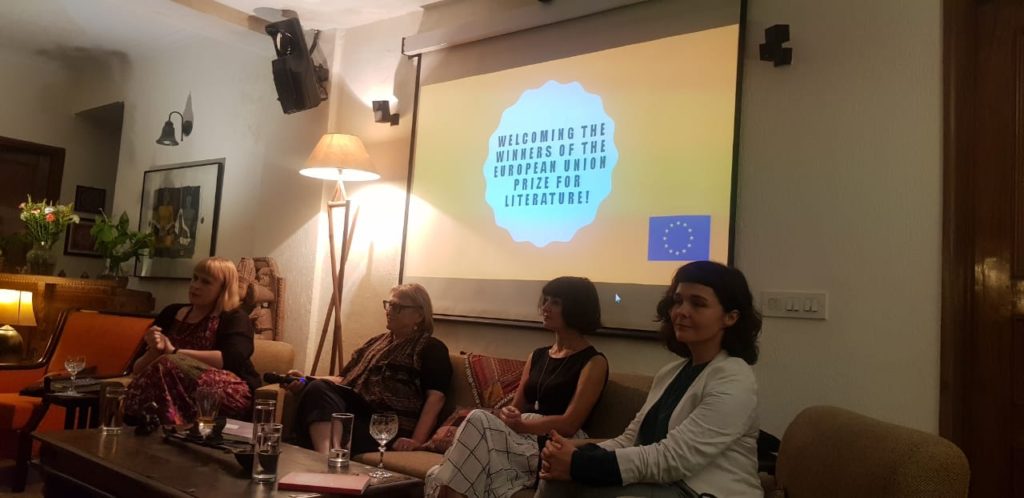
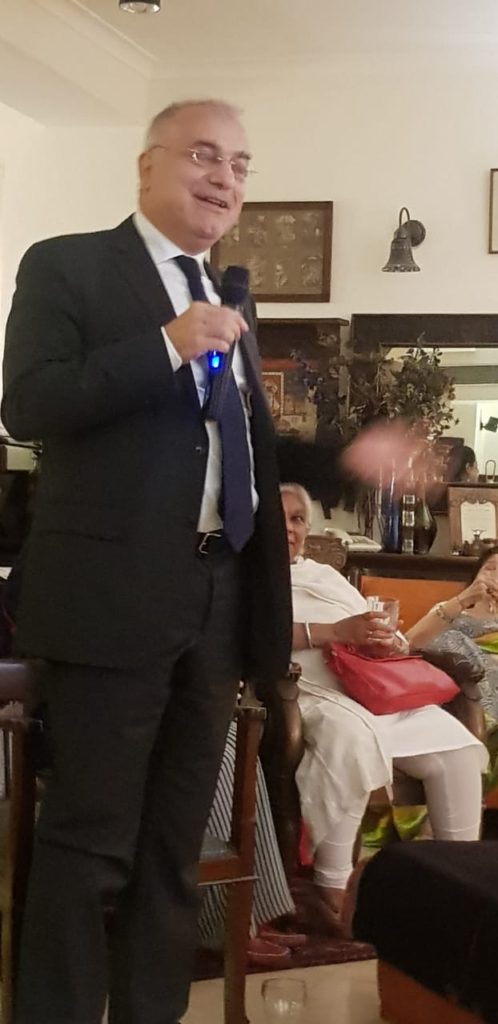
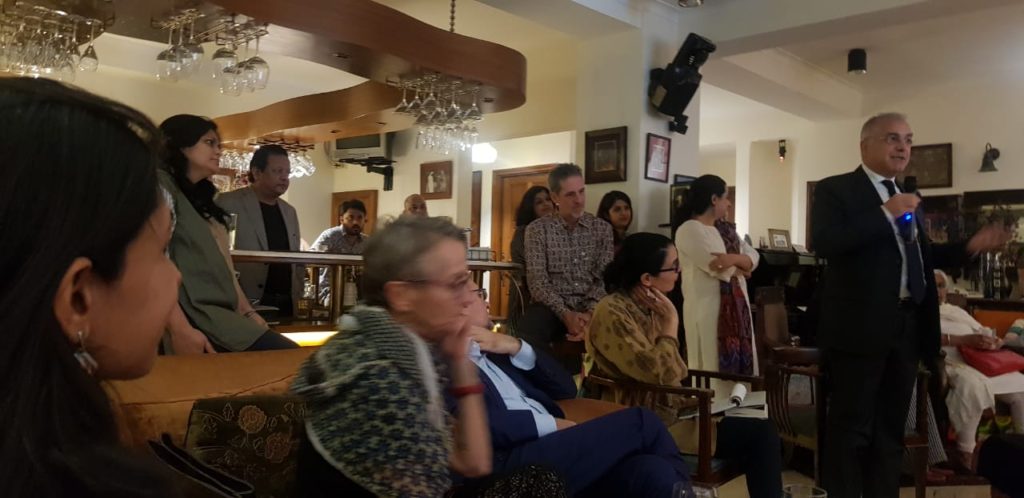
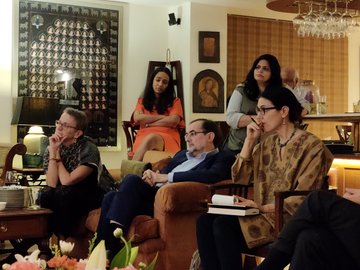
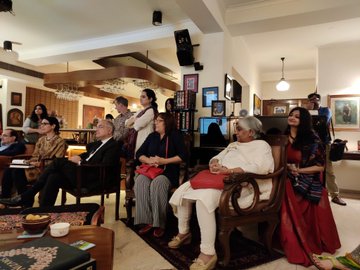
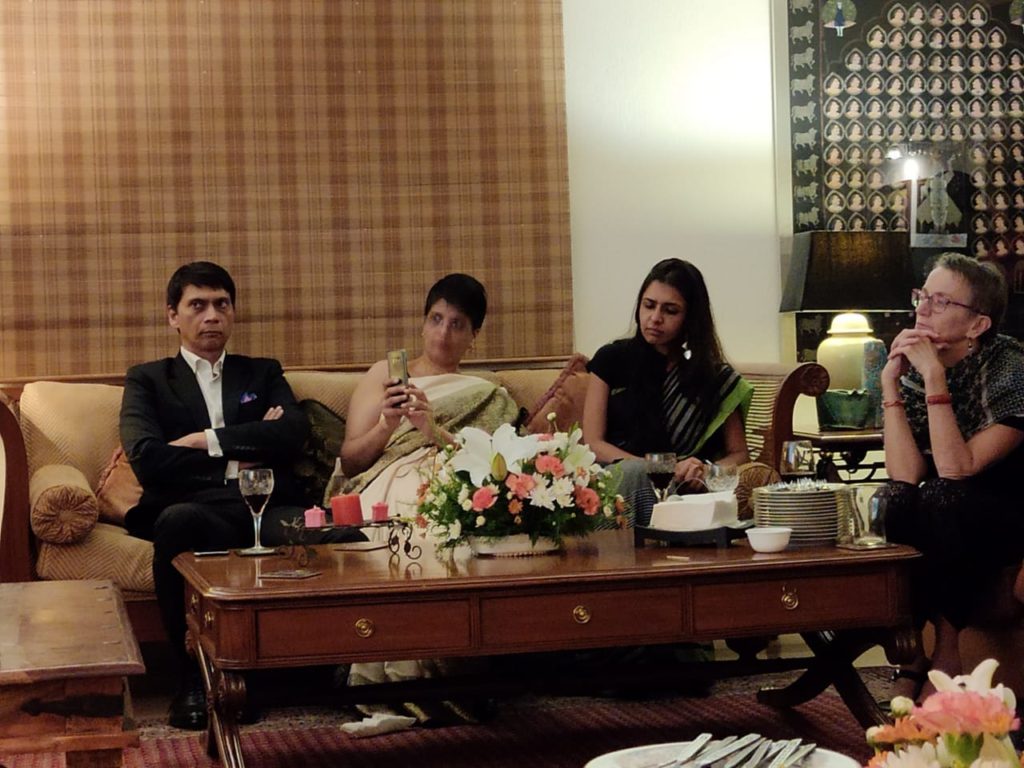
No Comments